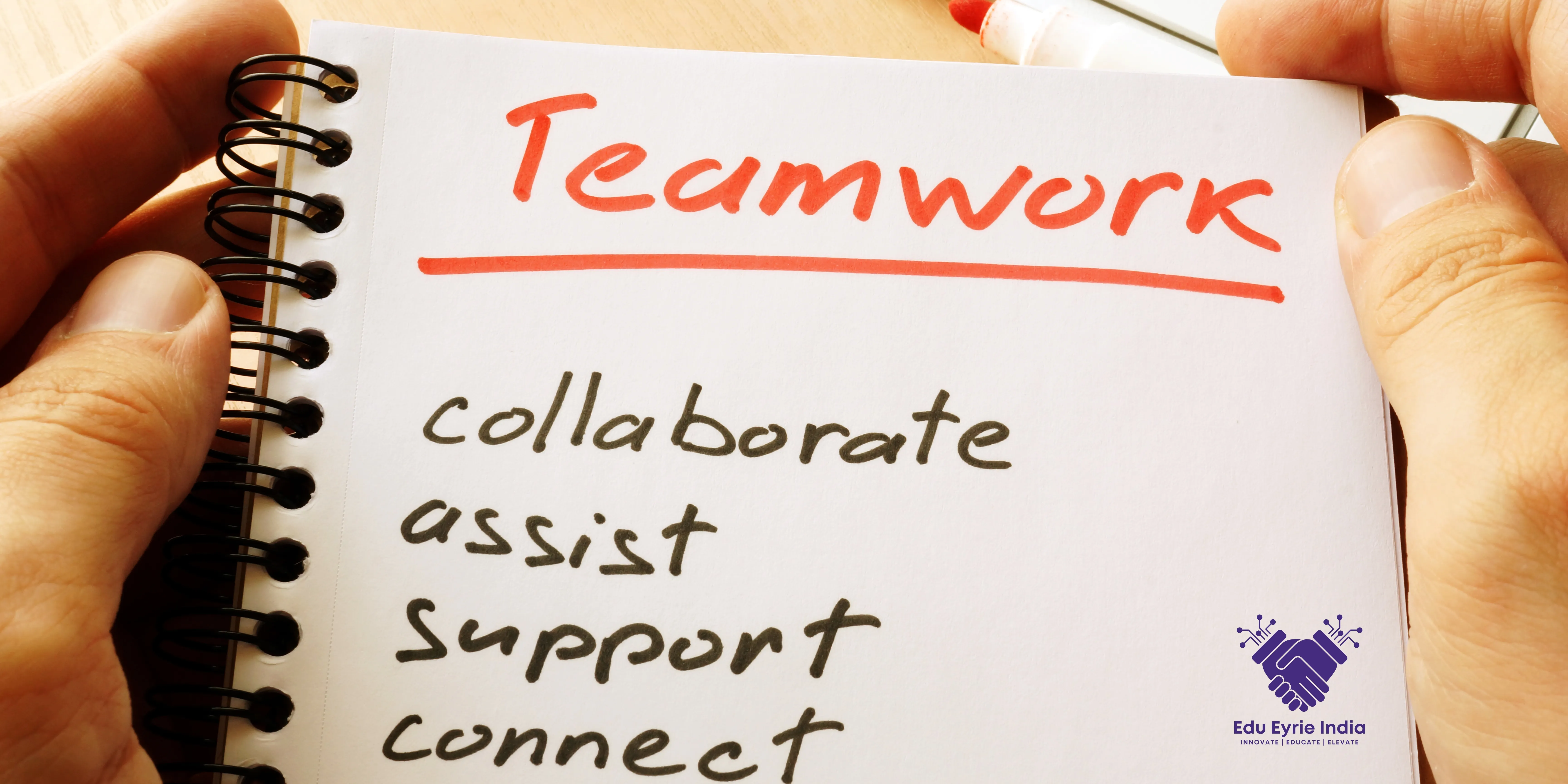Introduction: Teamwork Skills Unveiled
In today's fast-paced and interconnected world, the ability to collaborate effectively in a team is more than a professional necessity; it's a life skill. Teamwork skills go beyond boardrooms, weaving their magic into the fabric of personal relationships. In this exploration, we'll dissect the essence of teamwork skills, unraveling their types, strategies for development, and the profound impact they wield across diverse fields.
The Symphony of Collaboration: Types of Teamwork Skills
Communication Choreography:
Verbal Communication
- The heartbeat of successful teamwork. Clearly articulating ideas, active listening, and ensuring a shared understanding form the rhythm of effective collaboration.
Written Communication
- In the digital age, a crucial note in the teamwork symphony. Crafting concise messages, emails, and collaborative documents contributes to the seamless flow of teamwork.
Collaboration Ballet:
Conflict Resolution
- Inevitable in group settings, conflict requires a diplomatic dance. Team members skilled in collaboration navigate conflicts, finding resolutions that harmonize the team.
Problem Solving
- The ability to approach challenges collectively, a key move in the collaboration dance. It demands a fusion of critical thinking and creative expression.
Interpersonal Waltz:
Empathy
- A dance of understanding and connection within the team. Empathy creates a supportive atmosphere, weaving a tapestry of unity and mutual respect.
Relationship Building
- A fundamental step in the teamwork tango. Strong interpersonal skills contribute to the longevity and success of the team.
Crafting Teamwork Skills: Development Strategies
- Team Building Choreography
Icebreakers
- Opening moves designed to foster a comfortable and open atmosphere within the team. Icebreakers create a space for team members to connect on a personal level.
Trust-Building Exercises
- The foundation of effective teamwork. Trust-building exercises weave a sense of reliability and cohesion among team members.
- Training Programs Ballet:
Workshops
- Practical insights and strategies for improved collaboration unfold in workshops focused on teamwork skills.
Skill Development Courses
- Structured courses dedicated to enhancing teamwork skills offer in-depth knowledge and hands-on experience.
- Teamwork on Stage: Workplace Impact:
Productivity Symphony
- Efficient teamwork orchestrates streamlined processes, reduced errors, and enhanced overall productivity within an organization.
Innovation Crescendo
- Collaboration breeds innovation. Teams valuing and nurturing creativity significantly contribute to a workplace's culture of innovation.
Real-Life Choreography: Examples of Successful Teamwork
Case Studies Spotlight
- Examining success stories offers valuable insights into how teamwork skills contribute to goal achievement in various contexts.
Real-world Showcases
- Tangible illustrations of teamwork success stories provide a backstage pass to the positive outcomes of effective collaboration.
Overcoming Choreographic Challenges: Building Teamwork Skills
Communication Pas de Deux
- Identifying and addressing communication barriers, a critical move for effective teamwork. Language barriers and misinterpretations must be elegantly handled.
Conflict Resolution Ballet
- An ongoing dance. Strategies for addressing conflicts within a team and fostering a culture of open communication are essential for sustained success.
Teamwork in the Professional Spotlight: Different Industries
Healthcare Ensemble
- Critical in healthcare settings where interdisciplinary collaboration is paramount for patient care and safety.
Business and Corporate Ensemble
- Fundamental for project management, cross-functional collaboration, and achieving business objectives in the corporate world.
Leadership as the Choreographer: Fostering Teamwork
Leadership Styles Ballet
- Different leadership styles influence teamwork development. Leaders prioritizing collaboration create an environment conducive to success.
Creating a Supportive Team Environment Waltz
- Leaders play a crucial role in fostering a supportive team environment. Open communication, recognizing achievements, and providing constructive feedback are their key moves.
Evaluating the Dance: Measuring Teamwork Skills
Performance Metrics Waltz
- Assessing collaboration, communication, and problem-solving metrics within the team is the measure of effective teamwork.
Feedback Mechanisms Tango
- Regular feedback mechanisms allow team members to reflect on contributions and areas for improvement, fostering continuous growth.
The Dance of the Future: Trends in Teamwork
Remote Collaboration Waltz
- With the rise of remote work, the ability to collaborate effectively in virtual environments takes center stage.
Technology Integration Tango
- Incorporating technology tools for collaboration and communication continues to shape the landscape of teamwork.
Conclusion: The Artistry of Teamwork
In conclusion, teamwork skills are not mere professional tools; they're the artistry in the intricate dance of life. Developing these skills requires a blend of effective communication, collaboration, and interpersonal abilities. As we navigate an ever-evolving world, fostering and honing teamwork skills emerge as indispensable for success.
FAQs: Spotlight on Common Inquiries
What are the key components of effective teamwork?
Effective teamwork involves strong communication, collaboration, and interpersonal skills. It also requires a positive team environment and the ability to address conflicts constructively.
How can individuals enhance their teamwork skills?
Individuals can enhance their teamwork skills through participation in team-building activities, workshops, and skill development courses. Additionally, practicing active listening and empathy contributes to improved collaboration.
Why is teamwork important in the workplace?
Teamwork is crucial in the workplace as it enhances productivity, fosters innovation, and creates a positive and supportive work culture. It enables individuals to combine their strengths to achieve common goals.
What challenges might arise in building teamwork skills?
Challenges in building teamwork skills include communication barriers, conflicts, and the need for effective leadership. Overcoming these challenges requires a commitment to open communication and continuous improvement.
How can leaders promote teamwork within their teams?
Leaders can promote teamwork by fostering a supportive team environment, recognizing and rewarding collaboration, and implementing feedback mechanisms. Leading by example and encouraging a culture of inclusivity also play vital roles.

